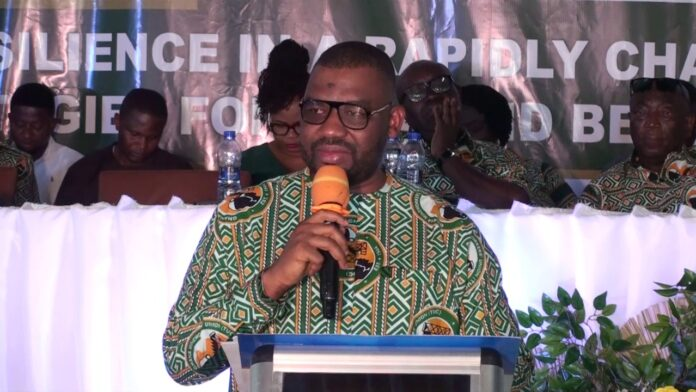According to the Ghana Mines Workers Union (GMWU), the move from permanent to non-standard types of employment in the mining sector, such as temporary labor, casualization, and fixed-term contract work, is increasing job insecurity.
According to research done by the Union, over 90% of the workforce in the mining industry is now involved in non-standard forms of employment, with normal employment accounting for only 10%.
GMWU General Secretary Abdul-Moomin Gbana stated during the Union's 13th quadrennial delegates conference in Obuasi that the development has resulted in "lower levels of employment protection and a high degree of uncertainty." "There has been a surge in workers and trade union rights violation, a shrinking collectively bargaining coverage, job insecurity, threatening social protection cover, and fluctuation in income and pensions," he said.
While firms are releasing earlier promises to employees, the Union has seen that they tend to recruit the same talented people under extremely disadvantageous terms and circumstances.
"Regrettably, this phenomenon continues to be exacerbated by the wanton fragmentation of production and outsourcing arrangements by mining companies resulting in the further fragmentation of work, the rise of non-standard forms of employment, and the further individualization of labour and employment relations," he said.
Ghana's inadequate labor regulation has been criticized for the proliferation of non-standard types of employment and the rising informality of the Ghanaian economy."In fact, when Newmont Gold Ghana Limited decided to embark on their rather controversial new employment model of switching permanent jobs to contracts of a fixed duration, or what we loosely refer to as fixed-term contract employment, the management of Newmont was asked why they took that decision. Their answer was quite interesting: "Ghana's labor law allows them to do it," the General Secretary of the mine workers stated.
GMWU iGMWU is thus calling on parties in the industrial relations sphere to collaborate to solve this troubling scenario and ensure employment protection for mining workers.
Ignatius Baffuor Awuah, Minister of Employment and Labour Relations, agreed that the country's Labour Act needed to be changed.
"We will have to subject it to thorough discussion so we ensure no employer or employee use the loophole to cheat the other," he said.
The delegates' conference provided a forum for mine workers to discuss topics of interest and devise effective ways to assist them in adjusting to the constantly changing world of work.



.webp)






